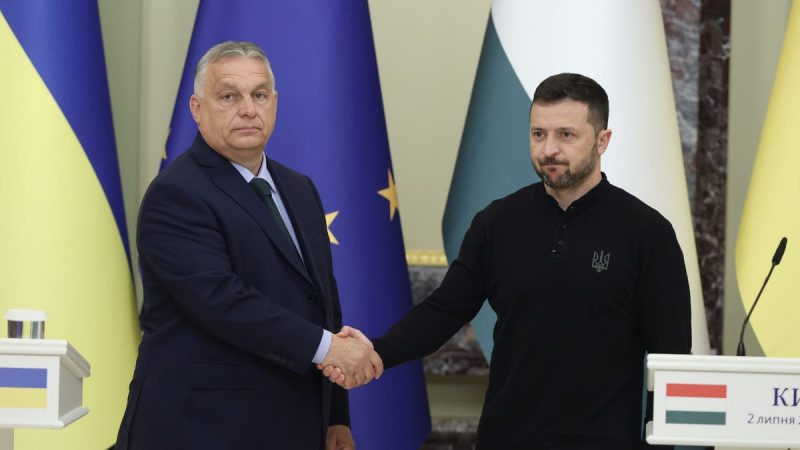Hungary’s Orban Ditches NATO Summit to Meet with Donald Trump
The decision by Hungarian Prime Minister Viktor Orban to skip a NATO summit in favor of meeting with U.S. President Donald Trump has raised eyebrows and sparked discussions about the implications for both NATO and the relationship between Hungary and the United States.
NATO, the North Atlantic Treaty Organization, is a critical alliance that provides collective security for its member countries. The summit Orban chose to skip was focused on addressing challenges such as cybersecurity, regional conflicts, and the threat posed by Russia. Orban’s decision to prioritize a meeting with Trump over attending an event of such importance to the security and stability of Europe has drawn criticism from some quarters.
Orban is known for his nationalist and populist positions, which have sometimes put him at odds with other European leaders and institutions. His meeting with Trump, who himself has a reputation for challenging traditional alliances and institutions, could signal a further shift in the dynamics of transatlantic relations.
The fact that Orban chose to meet with Trump, who has been openly critical of NATO and has pushed for member countries to increase their defense spending, has raised questions about Hungary’s commitment to the alliance. Hungary, like other NATO members, has pledged to meet a target of spending at least 2% of its GDP on defense, but has faced criticism for falling short of that goal.
Orban’s decision to prioritize a meeting with Trump over attending the NATO summit may be seen as a calculated move to strengthen his ties with the U.S. and potentially gain support for Hungary’s position on various issues, including immigration and sovereignty. Trump has praised Orban in the past for his tough stance on immigration and has been supportive of Hungary’s efforts to secure its borders.
However, Orban’s decision to skip the NATO summit could also be interpreted as a snub to other European leaders and a signal of Hungary’s willingness to align itself more closely with the U.S. and its unconventional approach to foreign policy. This could further strain relations between Hungary and its European neighbors, many of whom have been critical of Orban’s domestic policies and his drift towards authoritarianism.
Overall, Orban’s decision to ditch the NATO summit in favor of a meeting with Trump highlights the complex and evolving dynamics of international relations in an increasingly polarized world. It raises questions about the future of NATO, the role of the U.S. in shaping alliances, and the challenges facing Europe as it navigates a changing geopolitical landscape. Only time will tell what the long-term implications of this meeting will be for Hungary, NATO, and the broader transatlantic relationship.

